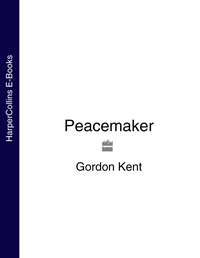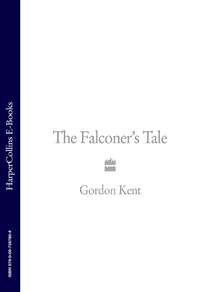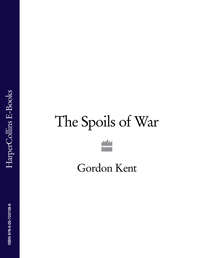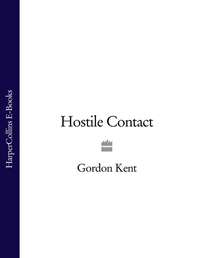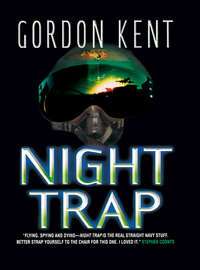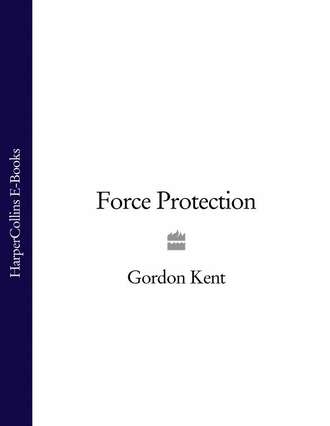
Полная версия
Force Protection
‘My son says there is a bad crowd in the street. Perhaps you should go now.’
Alan looked out the shop doorway, wondering how long the boy had been waiting for this ‘bad crowd.’ Then he could hear, in the distance toward Fort Jesus, a sound like waves on a beach.
The street in front of the little shop was empty.
Bad crowd?
Alan took his little cup of tea and drank it off, holding the other man’s eye. Now he was more than a customer; he was a guest.
‘How bad is it, mzee?’
‘I have no idea.’ The mzee was calm, attentive, dignified. ‘It might be better, after all, if you stayed here; these things soon pass.’ He picked up the necklace, studied it, said in the low voice of a man speaking to one who he thinks is sympathetic, ‘You understand: we are Muslims, and the government is not our friend.’
‘I appreciate your hospitality.’ Alan could hear the beach noise louder now, as if waves were breaking higher. It was a crowd, all right. But it didn’t sound angry.
‘But I should go. I have a friend looking for me by Fort Jesus.’
‘Please go carefully.’
‘I’ll be back for the necklace,’ Alan said. The noise was growing louder still, and the young men were restless.
‘Inshallah,’ the older man said with a bow.
The old man had had no idea there was trouble in the street. But the young ones had expected it.
‘Allahu Akbar,’ Alan said and hoisted the helmet bag through the door. God is great.
The crowd was thicker at the end of the street; men and women mixed, so not immediately dangerous. Still, the non-Muslim Kikuyu shops that pretended to be part of Old Town seemed to be closed, their half-Masai guards glowering from the height advantage of their steps. The street he entered from the back street with the silver shop was narrow at the best of times; now it was claustrophobic, with at least a thousand men and women jammed along its length. Alan began to shoulder his way along it, looking for Craw, for any white face, but there was none. He got as far as the gap between two ancient houses and he turned into it and pushed along through a smell of urine until he reached the next street, which was almost as full. He shoved himself toward Fort Jesus, navigating by the minarets of two mosques.
Men were pulling prepared signs about a jailed leader and economic conditions out of their houses. Some were in English, but all were labeled with the green sigil of the Islamic Party of Kenya – the IPK. Women were pulling the black abyas over their street clothes. He was acutely conscious of his color and of the fact that he was in the dressing room of a major demonstration – Old Town Mombasa was emptying into the streets that led up past Fort Jesus and into the center of town.
Despite his unease, he kept pushing his way along, apologizing – sameheni, pole, sameheni, pole. Twice, men bumped him hard or elbowed him; not enough to do damage, but enough to remind him to keep moving. His missing fingers itched and he felt trapped. If it hadn’t been for Craw, he would have gone around the other end, through the back alleys below the dhow port; he could walk that way and come out high up on Kenyatta Avenue. But if he did that, he’d be leaving Craw wandering Old Town in a riot.
He could see the corner and the peach flank of Fort Jesus rising beyond it, and then he caught sight of a white face and bushy eyebrows, a dark polo shirt. Craw. None too soon, he thought, and began to burrow toward him when three men off to his right registered as being different, somehow not part of the crowd. He couldn’t put a finger on it and he was eager to get Craw’s attention, but they were all three lighter skinned, carrying bundles that struck Alan as wrong. Some kind of tension. He hoped they had only swords or cudgels. The rest of the crowd seemed to keep them a little distant, too; he could see they were not ‘with’ anyone.
‘Craw!’ he yelled – pointlessly, as it turned out. There was too much noise. He kept burrowing. The three men were still there, just off to his right, and they were all looking at him now. Great. ‘Craw!’
Craw was standing on a step next to a half-Masai guard. The man was ignoring him, and Craw was looking up and down the street. Alan willed him to look a little farther back, and kept pushing, an inch at a time. Suddenly, as if a dam had broken, the crowd began to move the way he wanted to go, and the sound crested and crashed like the noise of the sea. Now Alan had to fight to reach the edge of the street and the human eddy where the Masai guard next to Craw was using a club to keep the crowd from his shop. Alan got clubbed on the shoulder as he struggled to get Craw’s attention.
‘Whoa, Ben, that’s my guy! Cool it!’ Craw stuffed a bill into the other man’s hand.
‘Glad to see you too!’ Alan shouted and got up on the step. From his new vantage point he could see the crowd sweeping up the hill out of the square at the base of Fort Jesus and into the park where the British colonial office had been. He couldn’t grasp how many they might be, but they didn’t seem any less packed in the larger area. They were loud, but almost half were abya-wearing women.
‘Riot?’
‘Protest, I think.’ But Alan couldn’t forget the three men he’d seen.
At the top of the park, as many as twenty trucks full of what appeared to be soldiers in camo with assault rifles were deploying. Alan leaned past the Masai guard and shouted into Craw’s ear. ‘General Service Unit. Nasty. Those guys will shoot first and ask questions later.’
The ground rose in a gradual curve uphill from Alan to the park, giving him a dramatic view over the heads of the crowd. The protestors had marched to the park on Nkrumah Road and now it was the only exit. A man with a loudspeaker was bellowing from an incongruous gazebo in the park’s middle, and a Kenyan cop with a bullhorn was yelling back at him from the top of a truck cab. The loudspeaker droned on. Alan couldn’t catch much of the Swahili, but the man in the gazebo appeared to be using the rhetoric related on the signs – demands for the release of Sheik somebody.
He shouted into Craw’s ear again. ‘I think we should get out of here the other way.’
‘What?’
‘I think we should get out of here the other way!’
‘What other way?’
‘Back through Old Town.’
Alan waved his hand toward the little street from which he had come. A flicker of motion in the second storey across the street caught his eye, and he watched, appalled, as the barrel of a rifle poked from the window and fired. The report was audible over the crowd noise. Alan was trying to point it out to Craw when the GSU officer with the bullhorn was cut off the truck cab and flung fifteen feet. The GSU response was immediate and brutal: a volley of fire swept the front of the crowd. Even from hundreds of feet away, Alan could see the mist of blood as the whole front of the crowd was cut down, and the rising scream of panic and hate that rose behind it. The rifle in the building across the street was firing steadily now. The crowd, trapped in the square, broke from the police guns and trampled their own dead, jammed the two exits, and then seemed to flinch away. The scream rose to an impossible pitch as the guns fired. Alan could smell the copper taint of blood on the air. He wanted to close his eyes. The line of fire from the GSU to the crowd meant that high shots went straight at their position on the step; bullets chipped the doorway behind him, and one creased Craw’s arm. Across the street, a group of young men were looking up and pointing, trying to get the crowd’s attention on the shooter in the window. The bulk of the crowd, sixty thousand strong, hovered in the cordite-filled killing ground between the choked exitstreets and the guns, and then with a high-pitched cry they charged the gun line. The GSU fired one long burst. Bullets that must already have taken a toll of lives spattered around Alan and Craw. The Masai guard died between them, the top of his head blown off.
Alan was down, huddled over the helmet bag, and Craw was lying flat on the step, but Alan couldn’t stop raising his head to watch, despite the dreadful rattling of the incoming rounds all over the coral concrete of the shopfront. He had a gun in his helmet bag but couldn’t think how he could change the situation.
A gasoline bomb arced over the crowd and exploded against the top of one of the GSU trucks. The wall of bodies hit the gun line and went over it, and all Alan could see of the action was a single reflection, a panga or a light axe, rise and fall, redder with every motion, set in isolation at the top of the carnage, and then the trucks were overrun. There were more trucks at the top of the square, and they were firing now, too.
But there were no longer rounds slamming into the concrete around them.
‘Come on!’ he shouted. Craw raised himself and followed.
Right under the peach walls of Fort Jesus Alan saw a trio of foreigners, obviously sailors, with open-necked shirts, khaki shorts, hats. One was black and another lighter, maybe Indian, but all were clearly Americans. Alan’s mind started to work again. He thought that the inside of Fort Jesus, with its five-meter-thick coral walls, might not be a bad place to ride out the riot.
Craw touched his arm and pointed wordlessly at the three sailors. Alan nodded, and in that moment accepted responsibility for them. The sailors were huddled against a wall fifty feet away. The street in front of the fort was almost clear except for the dead and wounded, and blood was everywhere, running over the cobbles and pooling in the gutters. Alan stepped on several bodies as he dashed across the street, and tried not to look down. There was a young woman dead; the bullet had entered her mouth and shattered her teeth, giving her face a feral look. Just beyond her lay one of the boys from the shop, gutshot, clutching his bowels and moaning.
Alan made it to the three men, who were still under the wall of the fort, with bodies at their feet and desperation engraved on their faces.
‘Lieutenant-Commander Craik, Det 424.’ They looked at him in shock. ‘You Navy?’
‘Merchant Marine!’ the Indian said. He was green under his tan, young. He looked and smelled as if he had already vomited. ‘I am Patel.’
Craw ran up and threw himself against the wall.
‘Kenyans have an APC!’
Something burning hit Alan’s arm and tinkled to the ground, then another. Shell casings. There were twenty or more on the ground beneath his feet, and he picked one up. They were coming from the top of the wall.
He looked up and saw the barrel of a rifle, matt black and hard to distinguish so far above his head. The shooter leaned out and again his casings fell at Alan’s feet.
So much for hiding in Fort Jesus.
‘We’ve got to get out of here!’ All the men nodded at him. ‘Follow me!’
Alan had a vague idea that the suburb behind the fort connected to the road to the port at Kilindini; anyway, it was the path of least resistance amidst the chaos all around them. There were buildings on the other side of the square that were on fire now; and the wall of noise didn’t seem to diminish. He recognized the sound of a heavy machine gun; its bullets raked the wall of the fort and sent a spray of high-velocity coral fragments into the street. The GSU, he thought, had discovered the sniper above him in the fort.
And then the earth shook.
Alan never actually heard the explosion – the screams of the wounded and the long combat wail of the mob drowned it out – but within seconds a fist of black smoke leaped into the sky over toward Kilindini. In his gut, Alan knew immediately that it was the docks – either a ship or the fuel farms. He thought fleetingly of his orders about Mombasa and their vague reference to ‘dissident’ elements who might resent the US presence.
‘Craw, bring these guys along. We’re getting out of here.’ His voice sounded absurdly steady. He thought again of the pistol in his helmet bag, but he was enough of a target now; he didn’t need to become a participant.
The first part would be the worst – left along the wall of the fort, screened from the square only by an old colonial office building too lightly built to stop a heavy military round. Even as he began to scuttle along the front of the fort, he watched puffs of coral appear silently along the front like flowers opening. He went anyway, got to the end of the wall, and dove into the cover of a big acacia tree. Patel appeared directly behind him and stood, confused as to where to go at the end of the wall. Alan hauled him down. The black guy appeared with Craw, and then the white guy, sprinting, and they were a hot, sweaty bundle in the marginal cover of the old acacia tree.
Alan looked for the next cover and their best path to a concrete building some meters off to the left. The effort of lifting himself from the ground seemed to take forever, and more willpower than the actual run. The storm of stray rounds was abating here; there were only a few marks in the stucco of the building’s wall. After him, the white guy came first, and then there was a pause so long that Alan feared he was going to have to go back. Then the black guy. Then, almost immediately, Patel and Craw. Craw was bleeding from the crease a bullet had cut in his head, a long tendril of blood that ran over his face, dividing it, and down the neck of his shirt, making his head look like a Mohawk mask.
They crossed the open ground and reached the edge of a neighborhood of lost affluence. Once, the place had been for British civil servants and their families, later for Indian shop owners; now it was up-and-coming Kikuyu. The little cottages had yards and trees and bushes, although the grass was gone now, worn dead by thousands of feet over the years, and the houses were so widely separated that each one offered a line of vision – and fire – back to the park. There was some cover, and a screen of big trees divided the neighborhood from the park and the square where the shooting still went on. Alan expected to start moving quickly here, but Craw grabbed his shoulder and pointed north, where a knot of men with weapons was moving parallel to them. Even as they watched, another knot left the cover of an old gazebo in the park and ran almost straight toward them.
Either the firefight with the GSU was lost or, worse, the wave front of the violence was spreading. Alan suspected the latter; there were still bodies in the road beyond the house where he was crouched, and the wailing noise seemed unabated.
‘We have to stay ahead of that,’ he said, pointing, and led them to seaward of the first house. There were pilings and a heap of concrete rubble, then a mudflat. The tide was down. Alan thanked heaven for a small miracle. He crawled down the concrete on to the mud, and found that it was firm and held his weight.
‘Smells like the ocean,’ Craw said. His Mohawkmask face was strained. Alan had never seen him afraid. He wondered what he looked like himself. Don’t stop to think. When they had all scrambled down, they began to jog along the mudflat. Mombasa was fifteen feet above them, and it was not until they had gone several hundred yards that Alan realized that he could hear again. The screaming was still there but distant, and his feet made little splashing noises as they slapped down on the wet mud.
Above them was a low cliff topped with trees. He didn’t know where they were; couldn’t remember having seen trees on this part of the island before.
He looked seaward and across to Likoni; he must be at the southern tip of Mombasa. He clambered up the low cliff, raising his head slowly, but there was no motion at the top except the slow flapping of a flag in the wind. He was looking over a sand trap at a fairway stretching off north; the grass was mostly brown and there was garbage everywhere, but no people. The crowd, far away now, sounded like breakers on a distant beach.
Alan waved the rest of his party to follow him up to the golf course.
He hadn’t even remembered that there was a golf course, and he was disoriented by the discovery. None of them had any water and there was none in his helmet bag, but the mental search for water reminded him of other things he did have: a hotel-supplied map of Mombasa and a tiny compass in his Swiss army knife holster. He shook his head, reached into the side pocket and retrieved them both. He opened the map and laid it in the dirt, placed the little compass beside it. He watched it steady down and resolve his problem. North. What he didn’t like was that in forgetting the golf course he had forgotten another mile of open ground and residential area before they could reach the water at Kilindini.
‘If we go that way –’ he pointed north and west – ‘we should cross Mama Ngina Drive and then Nyerere just above the Likoni Ferry. We can catch a matatu there for the airport.’
‘You’re the boss,’ Craw said. The map seemed to steady all of them. Alan noted that it seemed to resolve any doubts the three merchant marine sailors might have had about his leadership.
‘Why the airport, sir?’ the white sailor asked. ‘I’m Matt Jagiello, sir. Engine crew.’
‘I have a detachment, a naval detachment, at the airport,’ Alan said. He looked at the others. ‘I need to know your names. You’re Patel,’ and he motioned at the other man.
‘Les,’ the black man said in a curiously high voice. ‘Les White. I’m a cook.’
Alan subvocalized White, Patel, Jagiello. ‘Glad to meet you.’
Craw took out a somewhat mangled Snickers bar and cut it up into five sections with his big folding knife. They sat for a moment and chewed. It tasted like heaven but left Alan thirsty. They would need water soon, and reliable water was not easy to find in Africa. It was almost funny, to be lost and without water in a major African city. Burton would not have been proud.
‘Okay, we’re underway.’ Alan rolled to his feet and started to walk. Jagiello bounced alongside.
‘I can read a map and use a compass, sir. I mean, if you wanted me to. I taught orienteering…’ Alan spared the energy to turn and look at him and noted that his face was very white. Still a little shell-shocked. Every time Alan stopped concentrating on the problem at hand, he saw the broken teeth of the dead girl in the square, so he knew that they were all suffering from it. Too much violence with too little warning.
They needed water. It was easier to concentrate on that. Experience didn’t make violence any easier; it just gave the veteran an idea of what to expect, from his own body and from the violence. Alan was a veteran. He forced his mind to dismiss the broken girl and moved on.
They crossed the pale tarmac of Mama Ngina Drive almost immediately and were back on the short brown grass of the golf course. Alan could see that there were squatters under some of the bushes, but they were not moving much. The crowd noise in the distance was getting close, he thought. Alan suspected that they were moving down Ngina from the park and hoped that the Likoni Ferry wasn’t jammed.
It was. Nyerere Avenue was packed with burning cars, many turned on their sides or rolled right over, and men and women running. They had to stop at a gap in the fence as a knot of schoolgirls in tartan skirts and white shirts pushed past them into the golf course, clearly frightened.
‘We’re going right across. Don’t stop and don’t get separated. If you lose the party, stay on the coast and look for the Yacht Club.’ He didn’t stop to argue, although he could see that none of the men wanted to cross the road. Alan reached into the helmet bag and slipped a clip into his nine millimeter, then cocked it.
‘Ready?’ He forced a smile. ‘Here we go.’
He swung himself over the golf course fence and waited until he heard the thump of Jagiello’s landing behind him, and then he threw himself toward the road. Nyerere Avenue was thick with people; some seemed to be refugees from the rioting, while others seemed anxious to take part. They weren’t Muslims at all, but day workers or unemployed men. There were fewer women. Alan and his group hit the street in an open spot between two burning cars and, choking on the fumes, plunged across. Alan could hear sirens. He didn’t look up or back but kept his legs moving.
They were not going to catch a taxi here for the airport.
There was a small wooded area hard against the Nyerere traffic circle, and Alan pushed into it past squatters, rioters, and refugees. Only when he was safe among the branches did he look back. The rest of his people were right behind, with Craw bringing up the rear.
‘This whole city is a war zone,’ Craw said.
White shook his head. ‘Just a riot,’ he said. ‘Seen ‘em before. Looks worse ‘n it is.’
Alan suspected that it was worse than it looked, but Patel and Jagiello seemed to brighten up at White’s suggestion. He held his tongue.
‘How far to this Yacht Club, sir?’ Jagiello asked. ‘I’m kinda thirsty.’
‘We all are.’ Alan pointed at the sparkle of water ahead. ‘That’s Mbaraki Creek. Yacht Club’s right there.’ His mouth felt as if it was full of sand, and he wanted to sleep. He was worried about Craw’s head wound, too; it was seeping blood again, and he didn’t have a first-aid kit.
They left the wood and came out in a residential area that was obviously still prosperous. Hundreds of people were on the street and on the bare lawns, most sitting or lying down, none armed. Alan’s group attracted their notice, however, and people trailed along after them, asking questions in Swahili and English. They were desperate: he was white and looked like authority. Most of them shied away from Craw and the blood.
‘Pole, tafadhali,’ he repeated over and over. And kept moving.
It took them almost an hour to reach Liwatoni Road and the entrance to the Yacht Club, over two ravines and through a crowd of refugees from the fighting. They could still hear long bursts of automatic-weapons fire and see fire and smoke coming from the town center, but the greatest pillar of smoke Alan had ever seen was rising from the docks at Kilindini, which was closer here. He could see now that the smoke was rising from one of the piers. And then it struck him, for the first time, that the Harker and Laura and Admiral Kessler were all supposed to be pierside at Kilindini.
Alan had visited the Mombasa Yacht Club twice for functions, and he recognized it as a haven for oddball expats and round-the-world cruisers. Now its parking lot was packed with refugees, squatting on their heels and watching the smoke rise from the port. Alan crossed through them and pushed the door open and led his group inside.
Hundreds of photos and plaques adorned the walls, memories of happier days and more robust times. Two terrified black kids were behind the bar, and there was a handful of patrons, two with guns, all drunk. One rose from his chair and pointed a revolver at Alan.
‘Members only, old chap.’ It must have been a rehearsed line.
‘US Navy.’ Alan glared at the idiot, a fat man whose whole arm shook. He retreated. ‘Put the gun down, mister.’
The fat man looked at the gun as if it had just grown out of his fist.
‘We can’t be too careful –’
Alan ignored him and the other whites, and focused his attention on the two Kenyans behind the counter.
‘I need water and a first-aid kit.’ Alan spoke to the nearer one. ‘Baridi, tafadhali.’
Both Kenyans vanished and then bottles of water appeared as if by magic. Alan handed them around, watching to see they all drank before he took one for himself, although the plastic Evian bottle was cold and he wanted it with a passion bordering on lust. For a moment the club was silent except for the sound of five men guzzling water. Then a big, sunburned man leaned past the fat man.
‘Wha’ the fuck is happening out there?’ Aussie accent.
Alan finished his water.
‘Bad riot in Old Town. Lot of dead.’
‘Fucking Muslims.’
‘It was provoked.’ He realized that this sunburned Aussie was used to getting his way, but the man’s manner drove Alan to antagonize him. ‘The Muslims seem to have taken all the casualties, over in Old Town. Seems pretty convenient.’ He looked around.


